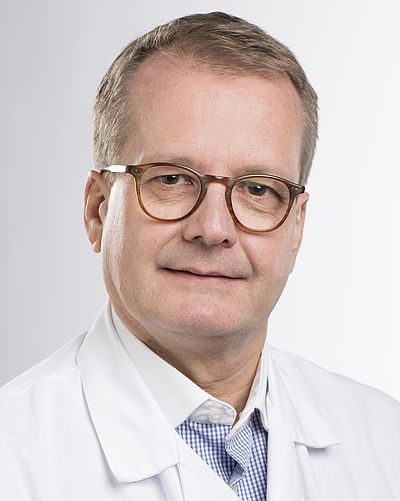A close look at the Lausanne inhabitants
The CoLaus|PsyCoLaus study includes more than 6,700 inhabitants of the city of Lausanne in Switzerland followed for over 15 years. The results of the study have already given rise to more than 470 publications.
Launched in 2003 in Lausanne, the CoLaus|PsyCoLaus study aims at identifying the risk factors and determinants of cardiovascular diseases and mental disorders and the mechanisms underlying their association in the general population. The study team, under the direction of Gérard Waeber, Peter Vollenweider and Martin Preisig, has examined more than 6,700 volunteers aged 35 to 75 years randomly selected from the population of the city (approximately 10% of the residents from this age group). Supported by several grants from the Swiss National Science Foundation (SNSF) since 2009, the research team follows participants at regular intervals (every three to five years) and studies health-related changes by collecting data on physical and mental characteristics of these participants.
Over the past 15 years, more than 470 scientific articles including data from the CoLaus|PsyCoLaus study have been published. Several new findings have emerged such as the significant association between the "atypical" depression subtype (characterized mainly by increased appetite and excessive sleep) and the increased risk of obesity, diabetes and metabolic syndrome, or the very high prevalence of obstructive sleep disorders.
A more sedentary life
Over the years, the phenotypes under study have been extended. For example, the ActiLaus sub-study focuses on the physical activity of participants, measured with a wrist-worn accelerometer for a period of two weeks. Initiated in 2014, ActiLaus has shown that the CoLaus|PsyCoLaus participants have a rather sedentary lifestyle. The researchers also found that physical activity either spread over the week or concentrated only during weekends are both associated with cardiovascular health benefits.
Distribution of Body Mass Index (BMI) in Lausanne
In the GeoCoLaus sub-study, the residential location of the participants was geolocalized within the city of Lausanne and associated with the geographical distribution of several cardiovascular risk factors. The researchers observed that increased BMI was not randomly distributed but that it clustered in certain areas of the city even after taking socio-economic factors into account. These results suggest that urbanistic factors (such as access to public transportation, proximity to fast food facilities) may play a role in the BMI distribution of the inhabitants of Lausanne.
Source: In Vivo special edition (2019) / Photo: © SAM-CHUV
Support our activities
The Foundation CHUV aims to get the community involved in supporting its treatment, research and training missions. The philanthropic gestures received at the Foundation aim to optimise patient care and develop scientific knowledge in the field of health for the good of all. Patients, their family and friends, the community and the medical and care staff are at the heart of its activities.




